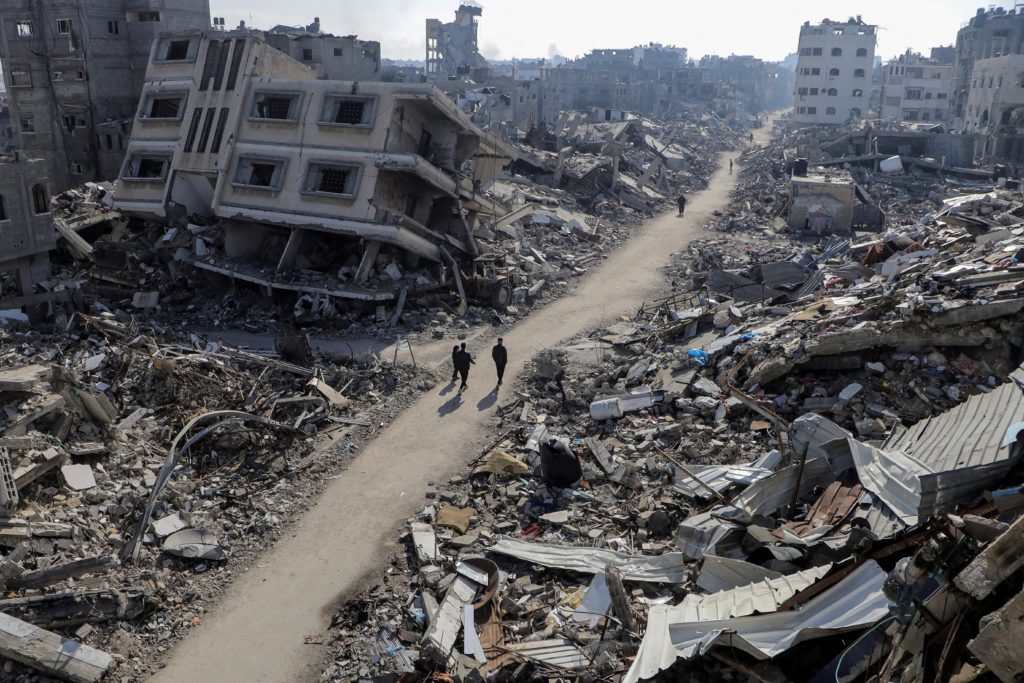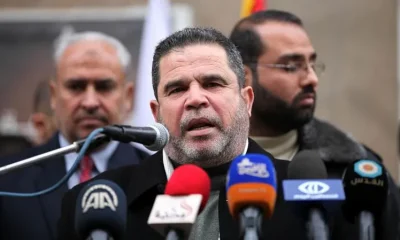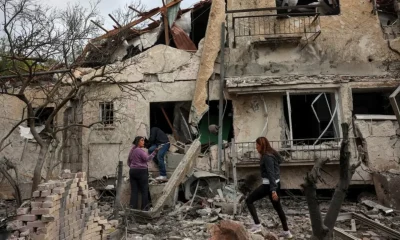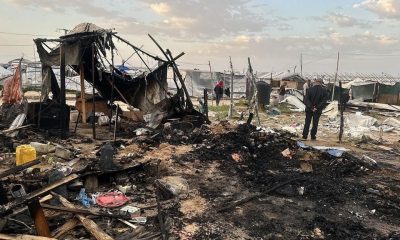International
Trump’s Gaza Relocation Plan Sparks Outrage from Hamas and Allies

- Trump proposes relocating Gazans to Egypt and Jordan.
- Hamas rejects the plan, calling it a violation of Palestinian rights.
- The Gaza ceasefire continues amid ongoing tensions and humanitarian challenges.
Hamas has strongly rejected a proposal from U.S. President Donald Trump to relocate the population of Gaza to Jordan and Egypt, following the ongoing conflict between the group and Israel.
Trump’s remarks, made during a recent event, suggested that relocating Palestinians from Gaza to neighboring countries could be a potential solution to end the long-standing crisis.
Editor’s Pick
- Ex-Speaker Obasa Defends Governorship Ambition Amid Controversy
- Hon. Abiodun Tobun’s 12th Edition Free JAMB Forms: Screening Test Held at Epe Girls High School
- Bello Turji Ready to Surrender as Nigerian Military Weakens His Forces
He proposed that Egypt and Jordan could take in Gaza’s displaced people, calling the territory a “demolition site” and emphasizing the need for new solutions to the conflict.
However, Hamas and its ally, Islamic Jihad, were quick to denounce the plan, labeling it a violation of Palestinian rights and calling it “deplorable.” Bassem Naim, a senior Hamas official, stated that Palestinians would never accept such a proposal, asserting that similar attempts throughout history to displace Palestinians have been foiled.

Both groups argue that Trump’s plan would amount to a forced relocation, reminiscent of the “Nakba” or catastrophe, a term used to describe the mass displacement of Palestinians during the establishment of Israel in 1948.
Trump’s comments came amid a fragile ceasefire between Israel and Hamas, which entered its second week.
The truce, which has seen hostage exchanges, is intended to lead to a more permanent peace agreement.

On January 25, four Israeli hostages and 200 Palestinian prisoners were released, a gesture aimed at reducing tensions. However, clashes continued, with both Hamas and Israel accusing each other of ceasefire violations.
While the ceasefire has resulted in much-needed humanitarian aid flowing into Gaza, the region’s infrastructure remains severely damaged.
Nearly 70% of Gaza’s buildings have been destroyed in the conflict, and the UN has called the humanitarian situation “dire.” Additionally, many Palestinians are unable to return to their homes in the northern part of Gaza, as Israel blocked their passage due to ongoing disputes over hostages.

Despite Trump’s proposal, which was welcomed by some far-right Israeli officials, the idea of forcibly relocating Palestinians has been widely criticized by international groups, including the United Nations, as an unworkable solution that would exacerbate the suffering of the Palestinian people.
Both Egypt and Jordan have expressed concerns over such an approach, with Egypt previously warning against any forced displacement into the Sinai Peninsula.
Further Reading
- ‘I Am Still Lagos Legitimate Speaker’ – Obasa Claims
- Moulding Destiny Foundation Hosts Breast Cancer Awareness Campaign in Eredo LCDA
- US State Department Freezes Foreign Aid Amid Trump Administration Review
The international community remains divided on the best path forward for Gaza and its residents, with calls for a sustainable peace agreement that addresses both the security concerns of Israel and the rights of the Palestinian people.
As the ceasefire continues, the future of Gaza remains uncertain, with deep mistrust on all sides and the prospect of further violence still looming.
Click HERE For our Video of The Week
Advertise or Publish a Story on EkoHot Blog:
Kindly contact us at ekohotblog@gmail.com. Breaking stories should be sent to the above email and substantiated with pictorial evidence.
Citizen journalists will receive a token as data incentive.
Call or Whatsapp: 0803 561 7233, 0703 414 5611



















